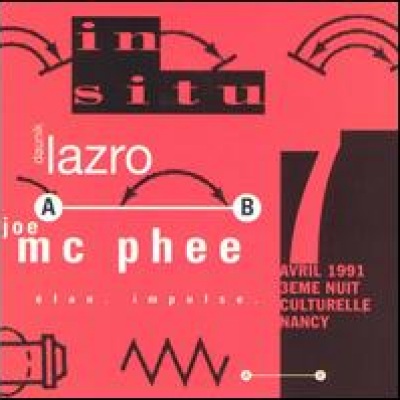
Elan Impulse
by Thom JurekThis live duet from 1991 in France is a stellar example of why Joe McPhee is among the most versatile and deft improvisers on the planet, as well as one of the tenor saxophone's key postmodern stylists. Forget David Murray and his hundreds of records made on a whim. This duo digs deep into the spirit of a particular night in France and calls out of it the entire improvisational tradition from Duke Ellington (whose "Come Sunday" is featured here) to Steve Lacy (whose "Pearl Street" is played movingly) and the host of time periods in between. There are even moments to suggest, when Lazro is playing his alto or baritone, an even earlier era than Ellington. McPhee and Lazro understand the language of the sanguine, of elasticity in tonal images. They employ a startling array of voices, not to break the images down but to tie them together with something new at the end (or the beginning), and circumnavigate the historical orb that way. This is jazz as trance music, as music spinning through history, and as inspired ranting and raving on the threshold of the unspeakable. As McPhee and Lazro move into their own improvisations, where Sonny Rollins is juxtaposed against Henry Cowell and Guy Lombardo yet read through McPhee's deep, R&B-influenced playing ("Sand Dancer"), you know something's up. When John Cage and John Coltrane are evoked with trombones and soprano saxophones, as they are in "Reason III," listeners know that civilization has indeed not ended or fragmented but instead has dovetailed and moved toward some kind of acceptance of forms. This is an astonishing record. Period.
